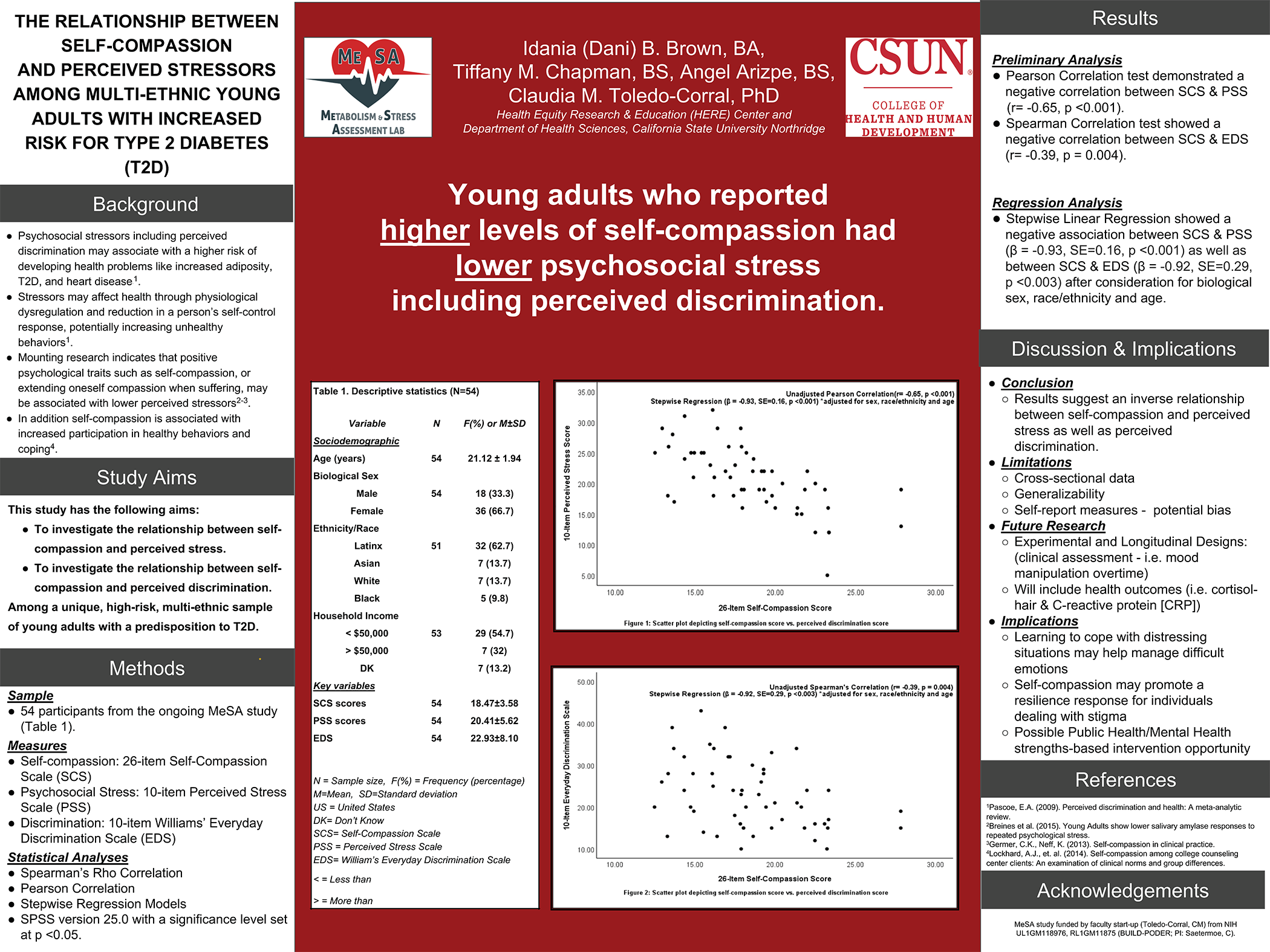Idania Brown, B.A., Tiffany M. Chapman, B.S., Angel Arizpe, B.S., Claudia M. Toledo-Corral, Ph.D., Department of Health Sciences, California State University, Northridge, Northridge, CA
Background: Psychosocial stressors including perceived discrimination may associate with a higher risk of developing health problems like increased adiposity, Type 2 diabetes (T2D), and heart disease. Mounting research indicates that positive psychological traits such as self-compassion, or extending oneself compassion when suffering, may be associated with lower perceived stressors. The aim of this study is to investigate the relationships between self-compassion, perceived stress, and perceived discrimination among a unique, high-risk, multi- ethnic sample of young adults with a predisposition to Type 2 diabetes.
Methods: An on-going pilot study conducted by the Metabolism and Stress Assessment Lab (MeSA) is recruiting young adults with a family history of Type 2 diabetes (n=24 to date of 100 expected). Participants completed the 26-item Self- Compassion Scale (SCS-26), 10-item Perceived Stress Scale (PSS-10), and 10-item Everyday Discrimination Scale (EDS). Spearmanʼs Correlation tests were used to assess these relationships in preliminary analyses. Future analyses will adjust for potential confounders including age, sex, and ethnicity.
Results: Preliminary data (n=24) showed a mean of 21.33 years ([range] = 18-25); 56.5% Hispanic or Latino/a, 17.4% Asian (Pacific Islander), 13% Caucasian, 8.7% African American or Black, 4.3% Asian (non-Pacific Islander); 66.7% female. SCS scores were negatively correlated with PSS scores (r= -0.48, p= 0.02), and EDS scores (r= -0.49, p= 0.02).
Conclusions: Preliminary results suggest that individuals exposed to higher self-compassion may have lower perceived stress and perceived discrimination. Further data collection is required to determine if an association will persist. If an association remains consistent, it may propose that self- compassion, kindness turned inward, may act as a protective factor against psychosocial stressors among young adults with additional increased risk of T2D.
*This poster was presented at The American Psychosomatic Society annual meeting. The sample size reflects that of March 2020.
